
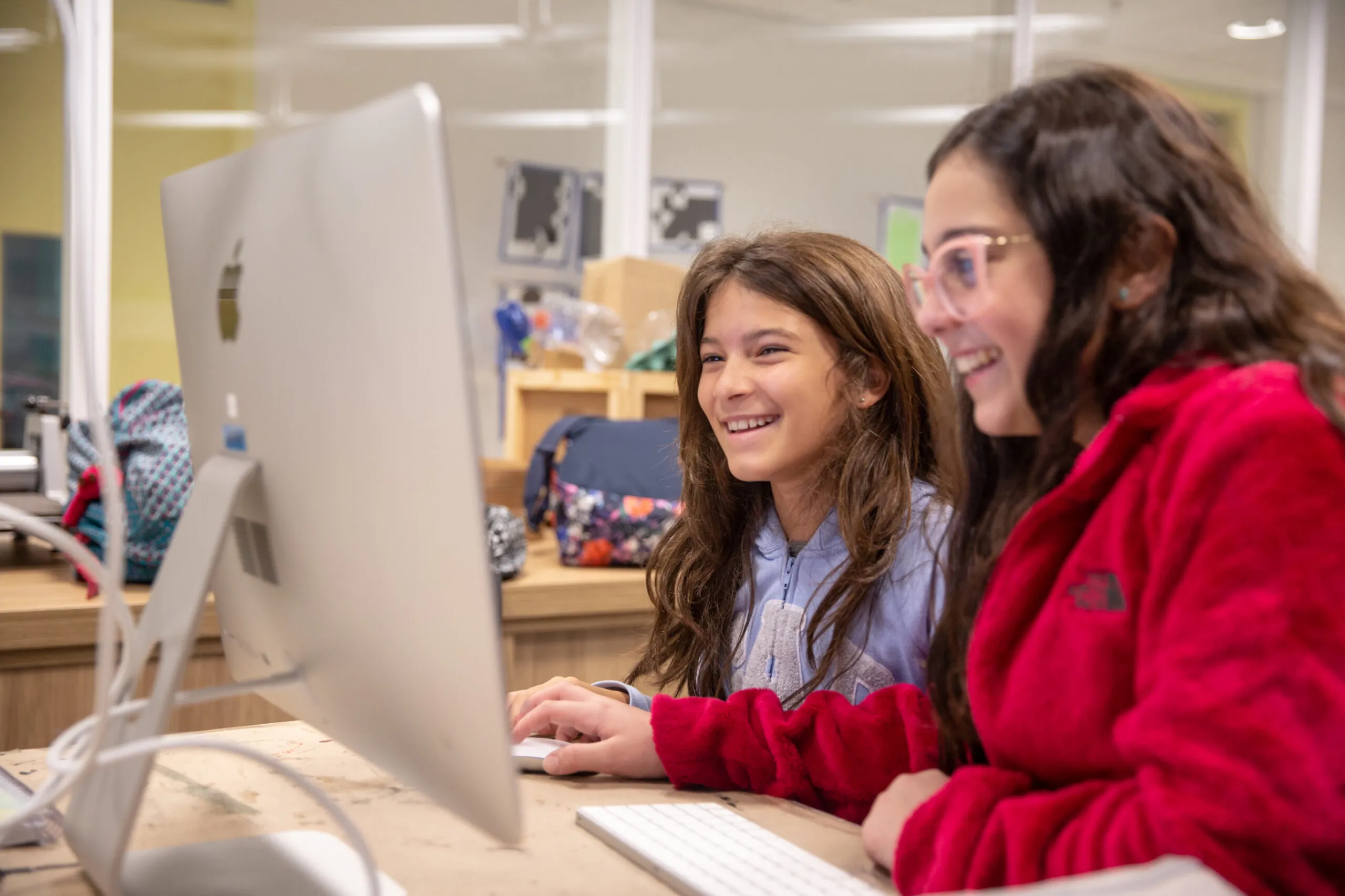
Explorar e desenvolver habilidades essenciais para o uso crítico e ético das tecnologias digitais, promovendo a compreensão das responsabilidades e direitos no ambiente digital, é um de nossos compromissos na formação de alunos e alunas que participam ativamente da sociedade digital.
Reflexões e debates sobre letramento digital, ferramentas de comunicação e produtividade digital, habilidades de navegação e utilização de plataformas de redes sociais, segurança, privacidade e responsabilidade online no compartilhamento de informações, direitos e deveres do cidadão digital, comportamento ético e responsável no ambiente virtual, técnicas de verificação de fontes e conteúdo e o impacto da desinformação na manutenção de uma sociedade democrática, propriedade intelectual e direitos autorais estão entre os temas propostos aos(às) estudantes.
Inaugurado em 2007, o eixo Conviver na Web – braço do Conviver Melhor, projeto longevo que, desde a Educação Infantil, visa ao compromisso das crianças e adolescentes com a cidadania na convivência coletiva, integrando as diversas áreas do conhecimento ao aprendizado prático de valores como justiça, respeito mútuo, responsabilidade e empatia – incentiva a conscientização da importância desses mesmos valores na convivência online.
Nossa intenção com o espaço Saiba mais (a seguir) é facilitar o acesso das famílias a materiais fundamentais para o desenvolvimento emocional, social e comportamental das crianças e adolescentes numa sociedade profundamente conectada e interdependente por meio de redes de comunicação e tecnologias digitais.
O crescimento da internet tornou possível a conexão entre pessoas e organizações em qualquer parte do mundo e em tempo real, exigindo dos adultos responsáveis pelos cuidados integrais de crianças e adolescentes mediações mais qualificadas que possam favorecer a navegação crítica, eficiente e ética por meio de tantas tecnologias digitais.
Quando os adultos têm ideias e decisões alinhadas, é mais saudável para a criança ou adolescente entender o que é certo e errado e o que é esperado deles. A consistência e a coerência entre os adultos representativos fortalecem a internalização de valores e princípios éticos, que guiarão suas atitudes e escolhas ao longo da vida.
Você notará que em Saiba mais há uma aba de indicações de material do Desligaí – grupo que reúne mães, pais e outros responsáveis por alunos e alunas da Móbile e objetiva, entre outras ações, estabelecer uma parceria entre famílias para estabelecer parâmetros adequados e conscientes do uso de smartphones e redes sociais.
Saiba Mais
Como promover diálogos enriquecedores com crianças e adolescentes para ajudá-los a conviver de forma ética, segura e responsável em ambientes digitais?
Como monitorar e limitar o acesso de crianças e adolescentes a determinados conteúdos ou atividades na internet, dispositivos eletrônicos , jogos ou plataformas de entretenimento?
Roubo de identidade infantil: como proteger as crianças na internet? - TecMundo
Family Link do Google - Ferramentas de controle e segurança para famílias
Famílias - Apple (BR) https://support.apple.com/pt-br/HT201304
Informações importantes para os familiares sobre o YouTube Kids
Ajude a proteger sua família online com a Segurança do Windows - Suporte da Microsoft
Como configurar contas de família na PSN
Families
O que é educação midiática?
Conheça EducaMídia, programa do Instituto Palavra Aberta com apoio do Google.org
Como preservar nossa liberdade de escolha em uma sociedade datificada?
Como as mídias podem identificar e combater o racismo estrutural?
Qual a relação entre educação midiática, direitos humanos e cidadania digital?
Quais os princípios fundamentais da Educação Midiática e suas implicações para a prática?
Quais são as camadas de nossa identidade digital?
Conheça alguns podcasts que ajudam adultos na orientação de crianças e adolescentes para navegarem na internet e conviverem nas redes sociais de forma mais segura e saudável.
https://educamidia.org.br/recurso/podcasts-sobre-educacao-midiatica
Convivere Mais » O Podcast # 11 – Agressão virtual
Convivere Mais » O Podcast # 07 – Deu briga no grupo de whatsapp dos pais
Convivere Mais » O Podcast # 04 – Meu filho tem 6 anos e quer um celular.
Documentos-base do Governo, UNESCO e EducaMídia - acesse aqui
Leia outros artigos da Nethics.
Acesse vídeos sobre o universo digital:
Como os algoritmos funcionam?
Algoritmos, redes sociais, sentimentos e engajamento
Filter Bubbles
Educação Midiática no Dia a Dia
Bolhas virtuais: como as redes sociais nos influenciam?
Jornalismo: conhecer para defender
Como os algoritmos espalham racismo e desigualdade de gênero – UOL Prime
Super Election Year: How UNESCO empowers voters with Media and Information Literacy skills – UNESCO
How AI Image Generators Make Bias Worse - vídeo da London Interdisciplinary School sobre perpetuação de estereótipos danosos.
Aprendendo como um jornalista – vídeoaula sobre formas de aprender a partir da investigação considerando o meio digital (material criado pela EducaMídia)
Há classificação indicativa para conteúdos online?
Há canais para denúncia e solicitação de ajuda?
Sugestões de livros para adultos:
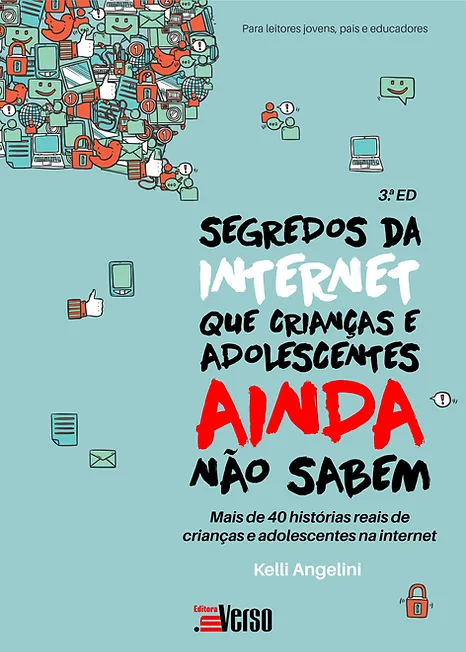
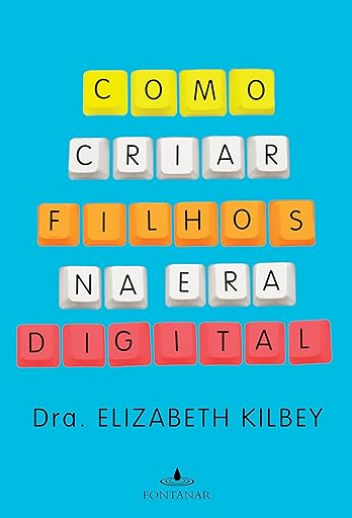
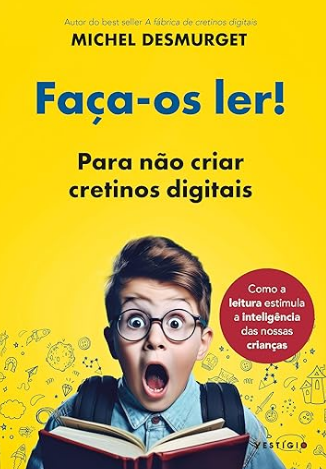
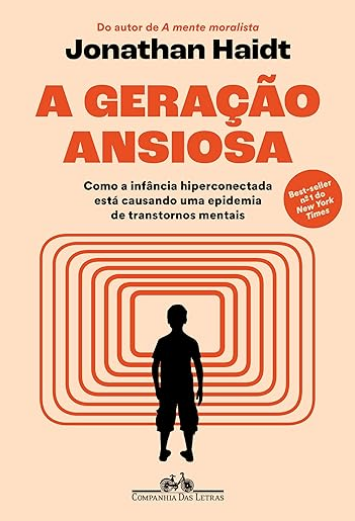
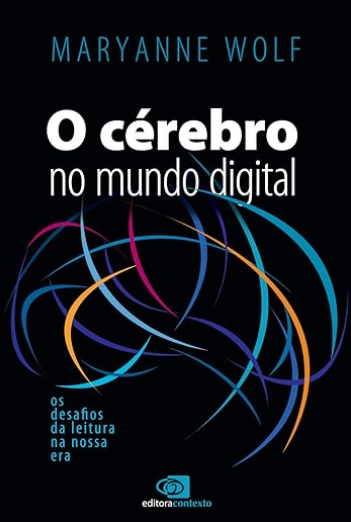
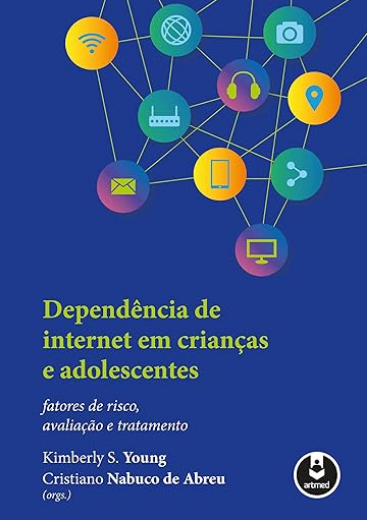
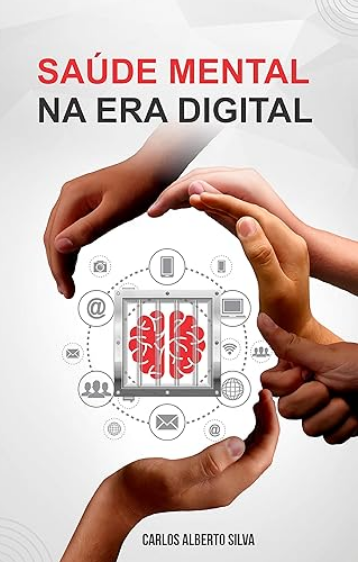
Sugestões de filmes para adultos:
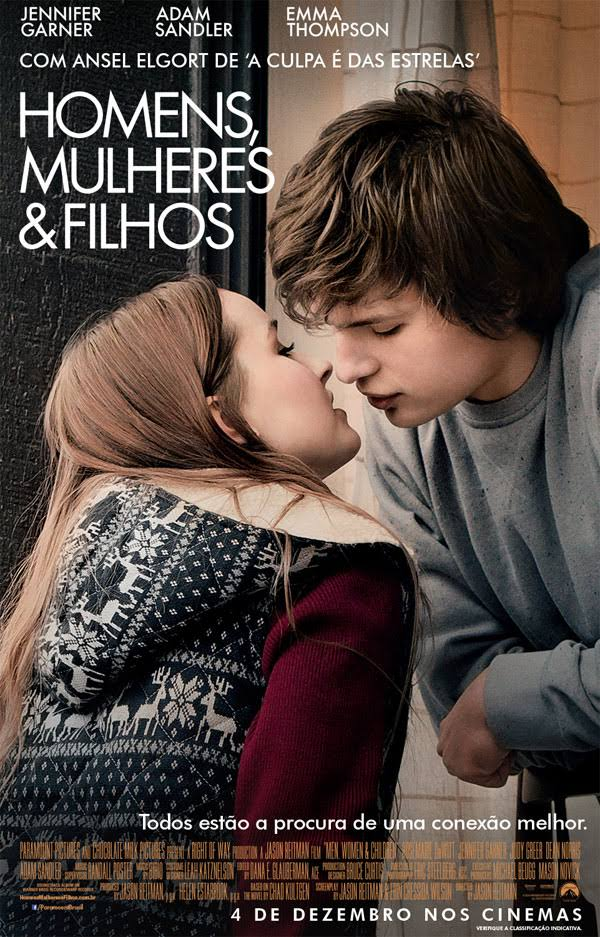
Não recomendado para menores de 16 anos.
Adultos, adolescentes e crianças amam, sofrem, relacionam-se e compartilham tudo, sempre conectados. A internet é onipresente, e, nesta grande rede em que o mundo se transformou, as ideias de sociedade e interação social ganham um novo significado. Algumas situações, como um casal que não tem intimidade, uma garota que quer ser uma anoréxica melhor, um adolescente que vive em num mundo de pornografia virtual, fazem o expectador repensar as relações humanas.
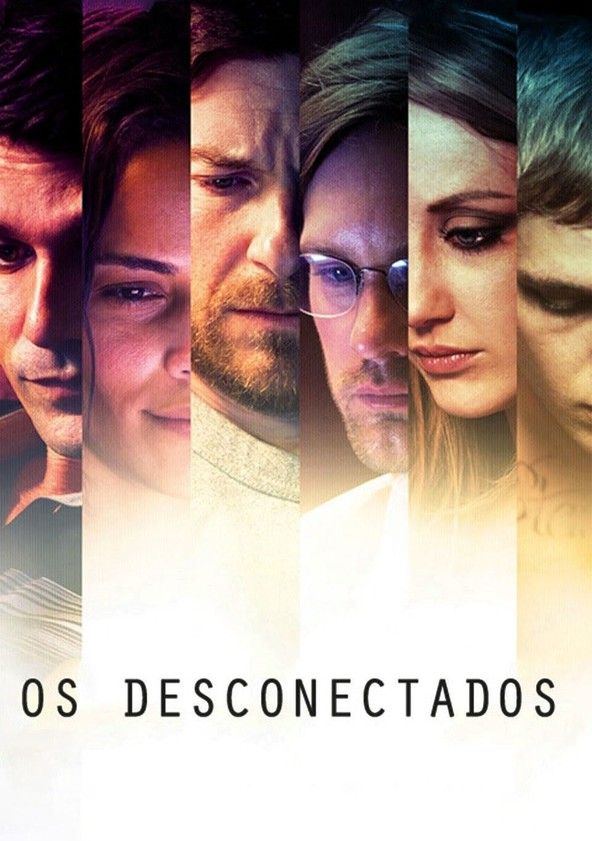
Não recomendado para menores de 16 anos.
Este drama mostra várias histórias pessoais, tendo em comum os efeitos perversos do uso excessivo de tecnologia, Internet e telefones celulares. A vida de um casal entra em perigo quando sua vida privada é exposta online, uma viúva e antiga policial descobre que seu filho humilha um garoto da escola pela Internet, um advogado obcecado por seu telefone não consegue se comunicar com a própria família, e uma jornalista que vê sua vida se transformar ao pesquisar a história de um adolescente que faz atuações eróticas pela webcam.
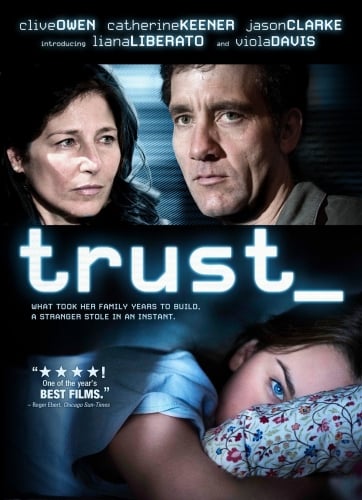
Não recomendado para menores de 14 anos.
Will (Clive Owen) e Lynn (Catherine Keener) têm três filhos. Enquanto um está prestes a entrar para a faculdade, a filha do meio, Annie (Liana Liberato), começa a apresentar os sintomas comuns das adolescentes que querem parecer mais velhas e ser aceitas entre seus pares. Publicitário bem-sucedido e muito envolvido com a profissão, Will procura ter uma relação de confiança com os filhos, mas Annie inicia um relacionamento pelo computador com um jovem de 16 anos e dá continuidade por meio do telefone. Sem que seus pais soubessem, ela aceita o convite dele para um encontro, mas a surpresa que ela tem no primeiro momento é só o começo de um pesadelo que marcará para sempre a sua vida e a de sua família.
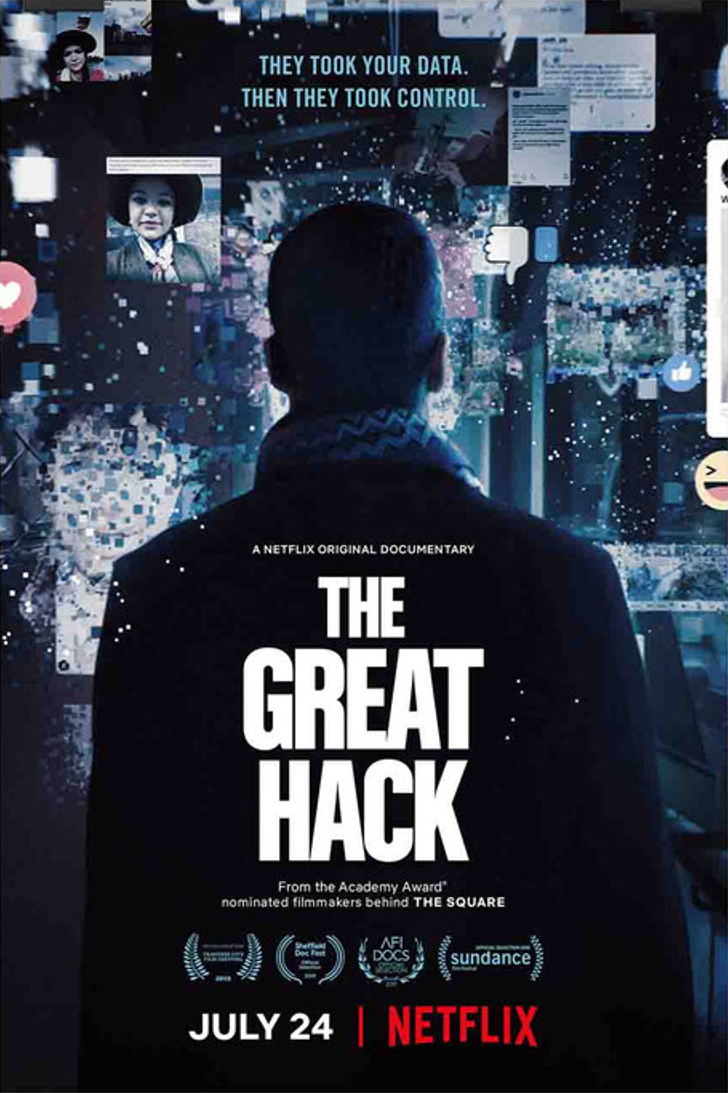
Não recomendado para menores de 12 anos. (Netflix)
O escândalo da empresa de consultoria Cambridge Analytica e do Facebook é recontado por meio da história de um professor americano. Ao descobrir que, junto com 240 milhões de pessoas, suas informações pessoais foram hackeadas para criar perfis políticos e influenciar as eleições americanas de 2016, ele embarca em uma jornada para levar o caso à corte, já que a lei americana não protege suas informações digitais, mas a lei britânica, sim.
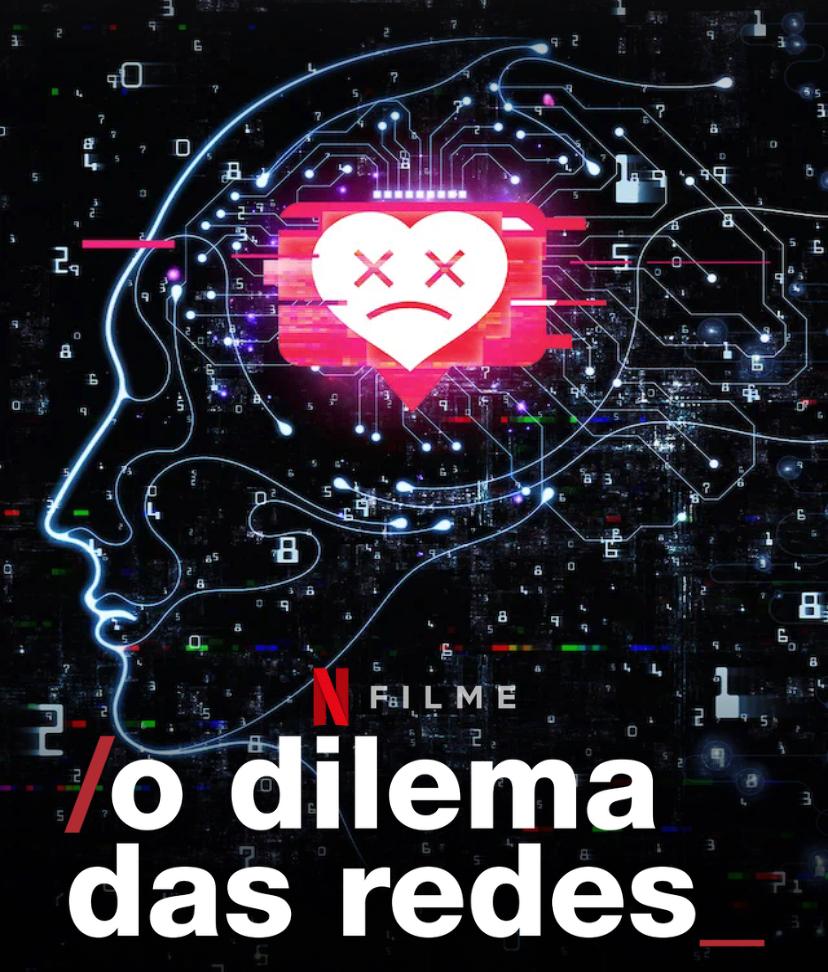
Não recomendado para menores de 12 anos. (Netflix)
O Dilema das Redes nos mostra como os magos da tecnologia possuem o controle sobre a maneira como pensamos, agimos e vivemos. Frequentadores do Vale do Silício revelam como as plataformas de mídias sociais estão reprogramando a sociedade e sua forma de enxergar a vida.
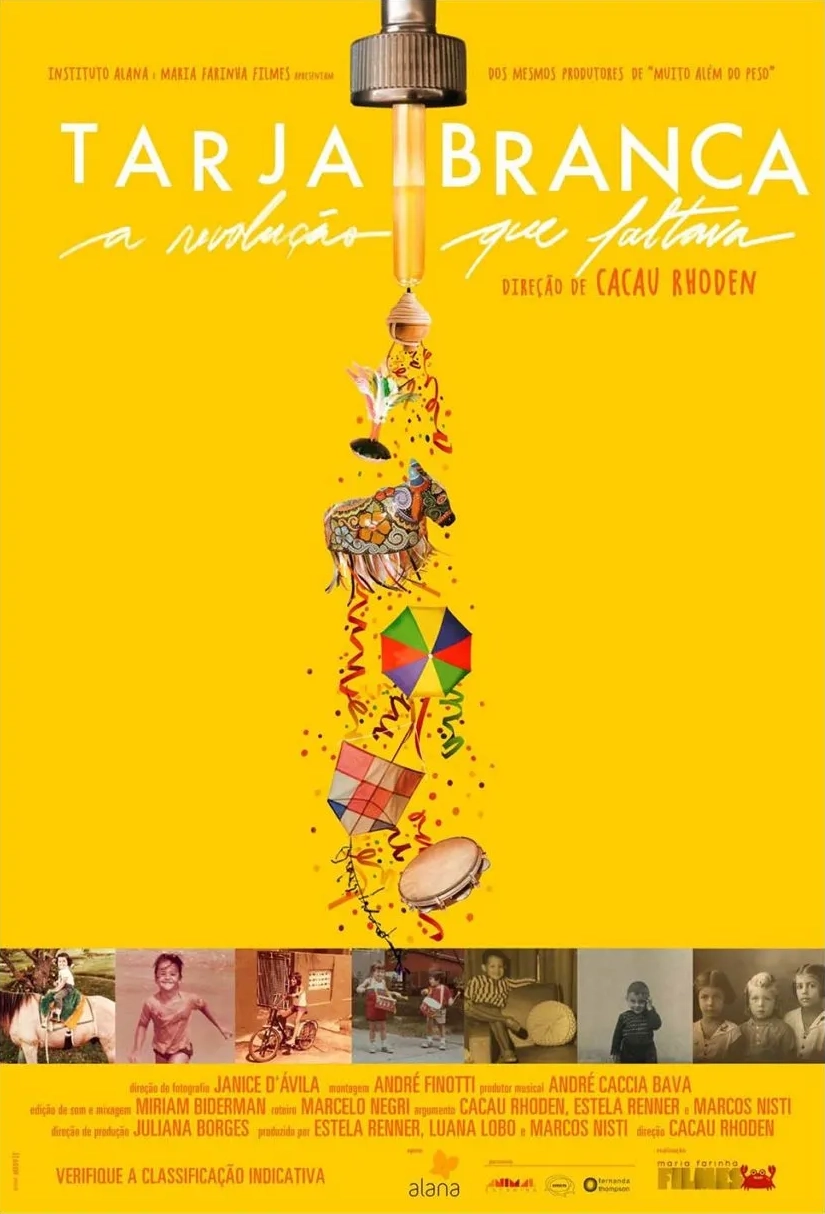
Classificação Livre
A partir dos depoimentos de adultos de gerações, origens e profissões diferentes, o documentário discorre sobre a pluralidade do ato de brincar e sobre como o homem pode se relacionar com a criança que mora dentro dele. Por meio de reflexões, o filme mostra as diferentes formas de como a brincadeira, ação tão primordial à natureza humana, pode estar interligada com o comportamento do homem contemporâneo e seu "espírito lúdico".
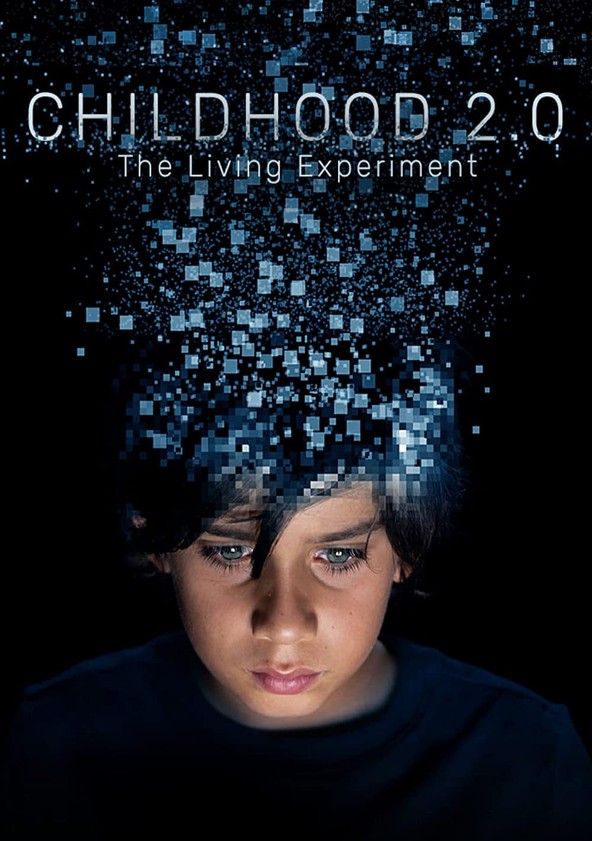
Não recomendado para menores de 13 anos.
Pela primeira vez na história, doenças mentais e suicídio se tornaram uma das maiores ameaças para crianças em idade escolar. Muitos pais ainda veem os perigos principalmente como físicos e externos, mas estão ignorando o perigo real: crianças passando mais tempo online e menos tempo se envolvendo na vida real, brincadeiras livres e autonomia. Quais são os efeitos na saúde mental, física e espiritual da próxima geração
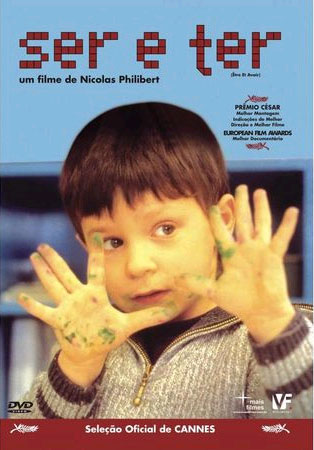
Classificação Livre.
Com uma paisagem de montanhas e terras agrícolas, o documentário segue um grupo de crianças entre quatro e doze anos que estudam em uma pequena escola de vila em Auvergne. Mostrando o dia a dia das crianças, a intenção é apresentar como elas aprendem a viver lado a lado e a conviver com os outros e seus desejos.
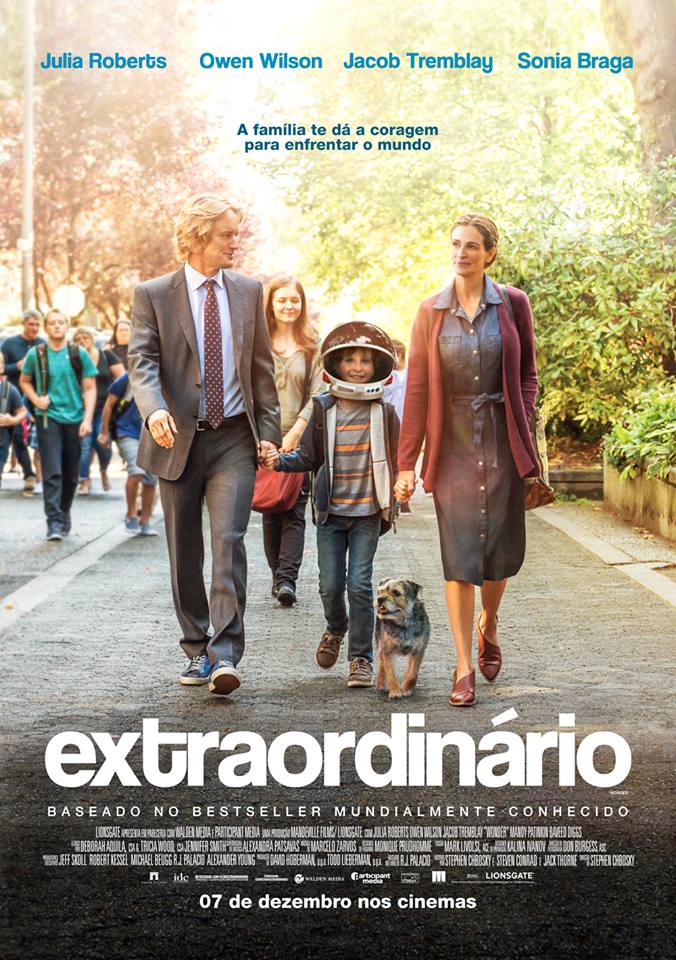
Não recomendado para menores de 10 anos.
Auggie Pullman (Jacob Tremblay) é um garoto que nasceu com uma deformação facial, o que fez com que passasse por 27 cirurgias plásticas. Aos 10 anos, ele, pela primeira vez, frequentará uma escola regular, como qualquer outra criança. Lá, precisa lidar com a sensação constante de ser sempre observado e avaliado por todos à sua volta.
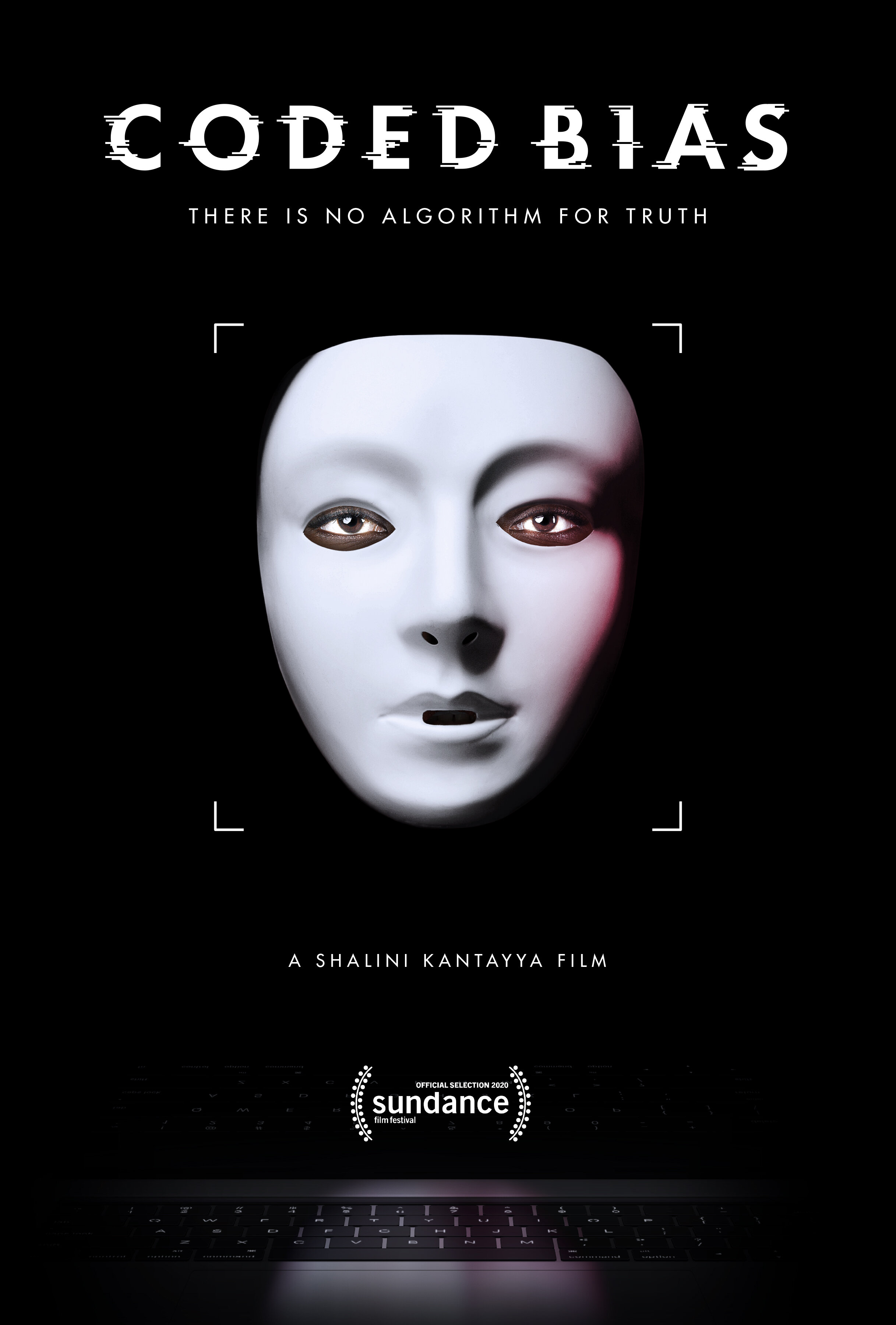
Não recomendado para menores de 14 anos.
Em Coded Bias, quando a pesquisadora do MIT Media Lab, Joy Buolamwini, descobre que a maioria dos softwares de reconhecimento facial não identifica com precisão os rostos de pele mais escura ou classifica incorretamente os rostos de mulheres. Ela investiga o caráter altamente tendencioso presente nos algoritmos. Acontece que a inteligência artificial não é neutra, e as mulheres estão liderando a acusação para garantir que direitos civis sejam protegidos.
Sugestões de livros para crianças:
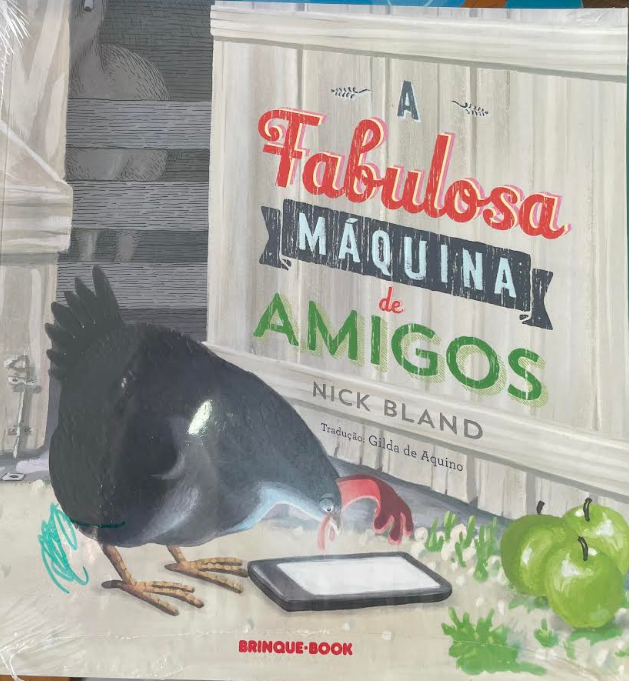
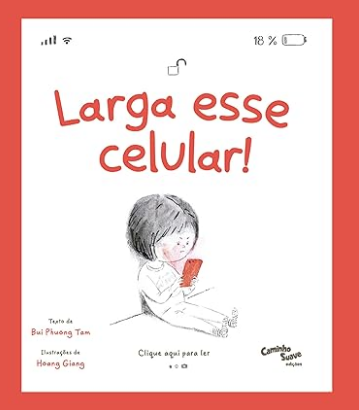
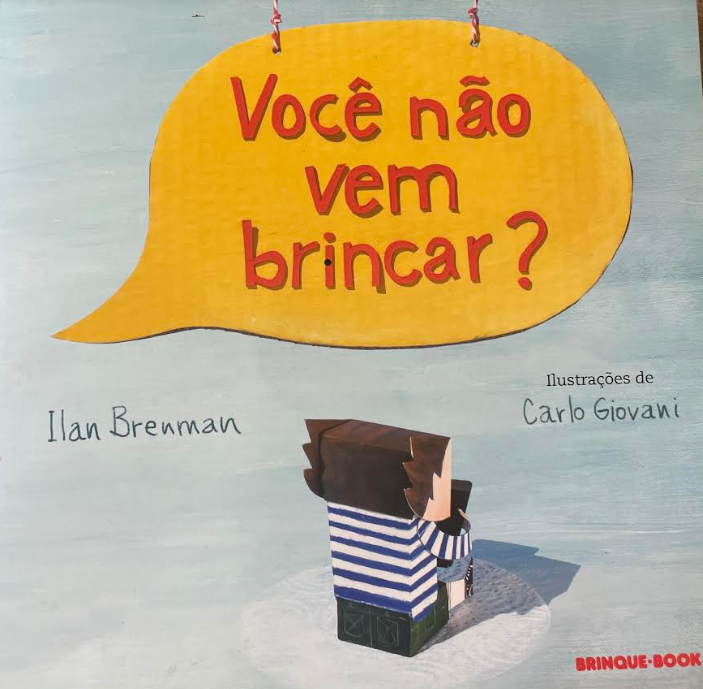
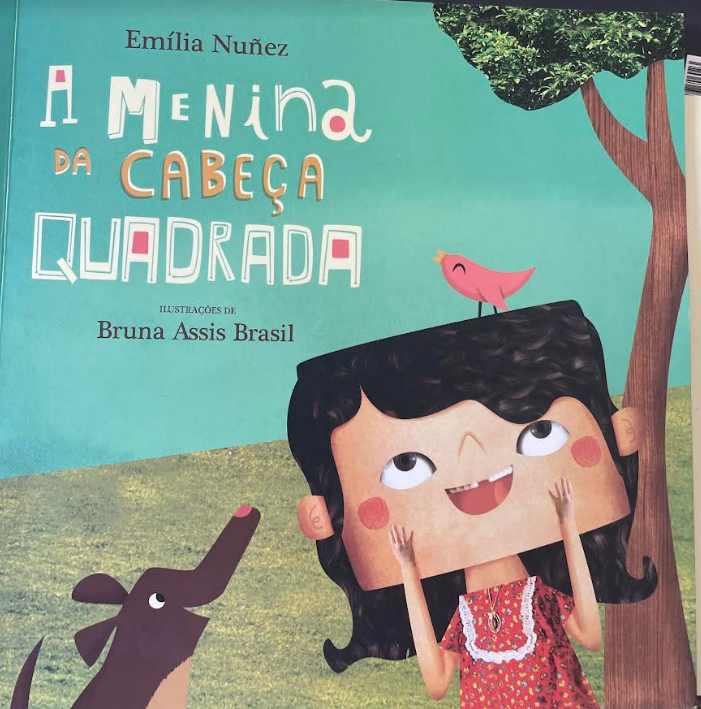
Sugestões do grupo Desligaí, formado por famílias da Móbile
https://www.youtube.com/watch?app=desktop&v=L0linbrJZsE&ab_channel=Desliga%C3%AD
https://www.youtube.com/live/rcHBV3WUnDk?si=Q42hXJ0u9ynAOPHV
https://www.instagram.com/reel/C__0gp3J9Mn/?igsh=MWpjczZucmx5NmpmNg%3D%3D
https://public-escola-mobile.s3.amazonaws.com/videos/video1961302798.mp4
https://www.youtube.com/live/2eQORF1d11U
https://www.youtube.com/watch?v=YwkIdmRHOJc
https://www.movimentodesconecta.com.br
https://www.anxiousgeneration.com/aligned-orgs
https://smartphonefreechildhood.co.uk
https://www.waituntil8th.org
https://delaysmartphones.org.uk
https://alana.org.br
https://open.spotify.com/episode/18QNJYJc2AlVrzgDKhfyyz?si=bJy7a2S5QR6yMaoyNA7Leg
https://open.spotify.com/episode/6eR3aKRgj84MMuAY5EH6QJ?si=KSSgKxYWQA2F4u_jf16 WOg
https://open.spotify.com/episode/5mvERujD9heoIIhcqgQufR?si=zJYzs_yJTP6Uy64GZHtFiw
https://open.spotify.com/episode/3tS3Q7uXXPtVEDQi7C9xJZ?si=jUxMVNvXQCOToXCHyKp D8w
https://spotify.link/DAbYkIQEKJb
https://open.spotify.com/episode/6wlqGPDU2irj5kP8IAESkv?si=zw6CrVIURgikJBKg2M1boA& nd=1&dlsi=a710df24288847d1
https://bento.me/theofflineclub
1. A Geração Ansiosa - Jonathan Haidt
2. Meu filho Tá Online Demais - Ana Escobar
3. A Fábrica de Cretinos Digitais - Michel Desmurget
4. Crianças e Adolescentes no Mundo Digital - Alessandra Borelli
5. Dopamina: a molécula do desejo - Daniel Pink e Michael E. Long
6. Psicologia do Cotidiano: Como Vivemos, Pensamos e nos Relacionamos Hoje - Cristiano Nabuco de Abreu
7. Psicologia do Cotidiano: Como a ciência explica o comportamento humano- Cristiano Nabuco de Abreu
8. Dependência de Internet em Crianças e Adolescentes: Fatores de Risco, Avaliação e Tratamento - Kimberly S. Young e Cristiano Nabuco de Abreu
9. Intoxicação Digital: Como Enfrentar o mal do milênio - Augusto Cury
10. A Máquina do caos: Como as redes sociais reprogramaram nossa mente e nosso mundo - Max Fisher
11. O cérebro no mundo digital: Os desafios da leitura na nossa era - Maryane Wolf
12. Transformações Mentais: Como as Tecnologias Digitais Estão Deixando Marcas em Nossos Cérebros - Susan Greenfield
13. Geração do quarto: Quando crianças e adolescentes nos ensinam a amar - Hugo Monteiro Ferreira
14. Faça-os ler!: Para não criar cretinos digitais - Michel Desmurget
15. Cérebro Adolescente: O grande potencial, a coragem e a criatividade da mente dos 12 aos 24 anos - Daniel J. Siegel
16. Plasticidade Cerebral e Aprendizagem: Abordagem Multidisciplinar - Newra Telleschea Rotta
17. Intoxicações eletrônicas o sujeito na era das relações - Angela Baptista e Julieta Jerusalinsky
18. Insanidade Digital: Como as Mídias Sociais Estão Afetando Nossa Saúde e o que Fazer Para Recuperar a Sanidade - Nicholas Kardaras
19. Segredos Da Internet Que Crianças E Adolescentes Ainda Não Sabem - Kelly Angelini
20. Nação tarja preta: O que há por trás da conduta dos médicos, da dependência dos pacientes e da atuação da indústria farmacêutica - Dra Anna Lembke
21. Quem educa nossas crianças?: Como evitar que as novas gerações sejam vítimas do consumismo e exploradas pelo marketing das Big Techs - Susan Linn
22. Algoritmos de Destruição em Massa - Catty O’Neil
23. Nexus: Uma breve história das redes de informação, da Idade da Pedra à inteligência artificial - Yuval Noah Harari
24. A Criança em Desenvolvimento - Helen Bee
25. O Cérebro da Criança: 12 estratégias revolucionárias para nutrir a mente em desenvolvimento do seu filho e ajudar sua família a prosperar - Daniel J. Siegel e Tina Payne Bryson
26. Tecnologia na Infância: criando hábitos saudáveis para crianças em um mundo digital - Dra l. Shimi Kang
27. Como Criar Filhos na Era Digital - Dra. Elizabeth Kilbey
28. Inteligência social: A ciência revolucionária das relações humanas - Daniel Goleman
29. Racismo algorítmico: Inteligência artificial e discriminação das redes digitais - Tarcízio Silva (eBook Kindle)
30. Criação com Simplicidade - Kim John Payne & Lisa M. Rosa
31. Irresistível: Por que você é viciado em tecnologia e como lidar com ela - Adam Alter
32. Dez argumentos para você deletar agora suas redes sociais - Jaron Lanier e Bruno Casotti
33. Tela com Cautela - Rafaela Carvalho e Roberta Ferec
34. The Big Disconnect - Catherine Adair
https://www.sbp.com.br/fileadmin/E-book%20Bullying%20e%20Cyber%20bio%20SBP%20-%202024.pdf
https://www.sbp.com.br/fileadmin/user_upload/24604c-MO__MenosTelas__MaisSaude-Atualizacao.pdf
https://nethics.wixsite.com/nethicsedu/artigos-1
https://new.safernet.org.br/content/ferramentas-de-controle-parental-na-web#mobile
https://new.safernet.org.br/content/mais-tempo-line-mais-mediacao-parental#mobile
https://www.theatlantic.com/technology/archive/2024/03/teen-childhood-smartphone-use-mental health-effects/677722/
https://www.afterbabel.com/p/phone-free-schools
https://www.associacaomatera.org.br/perguntas
https://www.theguardian.com/lifeandstyle/2024/jan/17/cellphone-smartphone-bans-schools
https://www.anxiousgeneration.com/pdfs/for-parents.pdf
https://letgrow.org/program/anxious-generation/
https://www.washingtonpost.com/nation/2024/05/01/school-cellphones-confiscate/
https://www.honest-broker.com/p/the-state-of-the-culture-2024
https://braziljournal.com/seu-filho-tem-celular/
https://www.ucl.ac.uk/news/2024/feb/social-media-algorithms-amplify-misogynistic-content-teens
https://inews.co.uk/news/world/spain-ban-children-under-16-social-media-3093398
https://www.nytimes.com/2024/04/19/briefing/tiktok-congress.html
https://www.sbp.com.br/fileadmin/user_upload/sbp/2024/setembro/04/NOTA_de_ALERTA-SBP-APOSTAS.pdf
https://www.estadao.com.br/educacao/renata-cafardo/escola-particular-e-um-dos-poucos-servicos-onde-nem-sempre-o-cliente-tem-razao/
https://www.ft.com/content/02e0f64c-08da-49ef-b3f6-f5673bdceb22
https://cetic.br/media/analises/TIC_kids_online_2013_hangout_imprensa.pdf
https://www.theatlantic.com/ideas/archive/2024/08/phone-ban-georgetown-washington-day-school/679340/
https://www.estadao.com.br/brasil/jogo-do-tigrinho-ate-influenciadores-mirins-fazem-propaganda-diz-entidade/
https://www.cnnbrasil.com.br/tecnologia/dumbphones-conheca-telefones-uteis-para-quem-quer-se-desconectar/
https://guiadoestudante.abril.com.br/atualidades/os-paises-do-mundo-que-ja-proibiram-celular-nas-escolas
https://www.ceale.fae.ufmg.br/glossarioceale/verbetes/tecnologia-digital
https://www.estadao.com.br/educacao/escolas-celular-tecnologia-smartphone/?utm_source=estadao:whatsapp&utm_medium=link&app_absent=0
https://www.economist.com/business/2024/08/01/dumb-phones-are-making-a-comeback?utm_medium=cpc.adword.pd&utm_source=google&ppccampaignID=19495686130&ppcadID=&utm_campaign=a.22brand_pmax&utm_content=conversion.direct-response.anonymous&gad_source=1&gclid=Cj0KCQjwj4K5BhDYARIsAD1Ly2r6tg7hUA300-noXURz4i8p3ErGWi2qxUHKU4ciMylLxIaSjF0PKZEaAjEVEALw_wcB&gclsrc=aw.ds
https://www.uol.com.br/tilt/colunas/helton-simoes-gomes/2024/08/06/celular-ja-e-proibido-por-quase-30-das-escolas-do-brasil-mostra-pesquisa.htm
https://www.instagram.com/p/C8xBW6fNqfX/?igsh=MXIyaWdycm9oYm14cg%3D%3D
https://saude.abril.com.br/mente-saudavel/dossie-ansiedade-como-nos-tornamos-escravos-dela/
https://www.instagram.com/p/C_nyLFXxqS0/?igsh=MXQ4ZTBkYTIzYzQwMQ%3D%3D
https://www1.folha.uol.com.br/educacao/2024/09/jovens-relatam-melhora-nos-estudos-e-nas-conversas-apos-veto-a-celular-na-escola.shtml
https://gamarevista.uol.com.br/semana/tem-jeito-certo-de-criar-os-filhos/julieta-jerusalinsky-as-telas-sao-perigosas-para-os-seus-filhos-tecnologia-crianca/
https://www.estadao.com.br/emais/carolina-delboni/bullying-exclusao-social-e-cancelamento-na-adolescencia-qual-a-relacao-entre-eles-entenda/#:~:text=Um%20dos%20fatores%20mais%20preocupantes,diretamente%20associada%2 0a%20comportamentos%20suicidas.
https://www.instagram.com/p/DACBfpZSZZw/?igsh=MWVrNGpjNXJ-nbHB4Yg%3D%3D&img _index=1
https://www.nordangliaeducation.com/insights/2024/articles/the-power-of-doing-nothing
https://www.instagram.com/jonathanhaidt?igsh=aHg3MHFkZXl1aGJr
https://www.instagram.com/protocoloeutevejo?igsh=cDVjc2p4azJxeTFl
https://www.instagram.com/draanaescobar?igsh=MWN5b-mJobW52NHNp
https://www.instagram.com/paulotelles?igsh=MXB5bXpheWYzYXVwYQ%3D%3D
https://www.instagram.com/sheylli?igsh=d3R6aGwxamFyaWdn
https://www.instagram.com/portal_lunetas?igsh=MTRldXJtN2c1NTZrMw%3D%3D
https://www.instagram.com/portalraizes?igsh=MXRpMHlld3Q4bGw5NA%3D%3D
https://www.instagram.com/cristianonabuco?igsh=ZGtqbXN3bmw4b2Zv
https://www.instagram.com/ilan.brenman?igsh=MmpvOXIyZHJhZmgz
https://www.instagram.com/alessandraborellioficial?igsh=NTB0bjJna3E5emJ6
https://www.instagram.com/redescordiais?igsh=MTU4bzRvNTRuaGpkdg%3D%3D
https://www.umminutodesuaatencao.com.br
https://www.instagram.com/luiza.c.brandao?igsh=dXpxOG1vcTFvcHVt
https://www.instagram.com/ineurobr?igsh=eHpxdHY3bjc1M2g1
https://papers.ssrn.com/sol3/papers.cfm?abstract_id=4735240
https://pubmed.ncbi.nlm.nih.gov/31193561/
https://unesdoc.unesco.org/ark:/48223/pf0000386147
https://news.harvard.edu/gazette/story/2023/03/experts-see-pros-and-cons-to-allowing-cellphones-in-class/
https://www.gse.harvard.edu/ideas/news/22/08/weighing-costs-and-benefits-cellphones-schools
